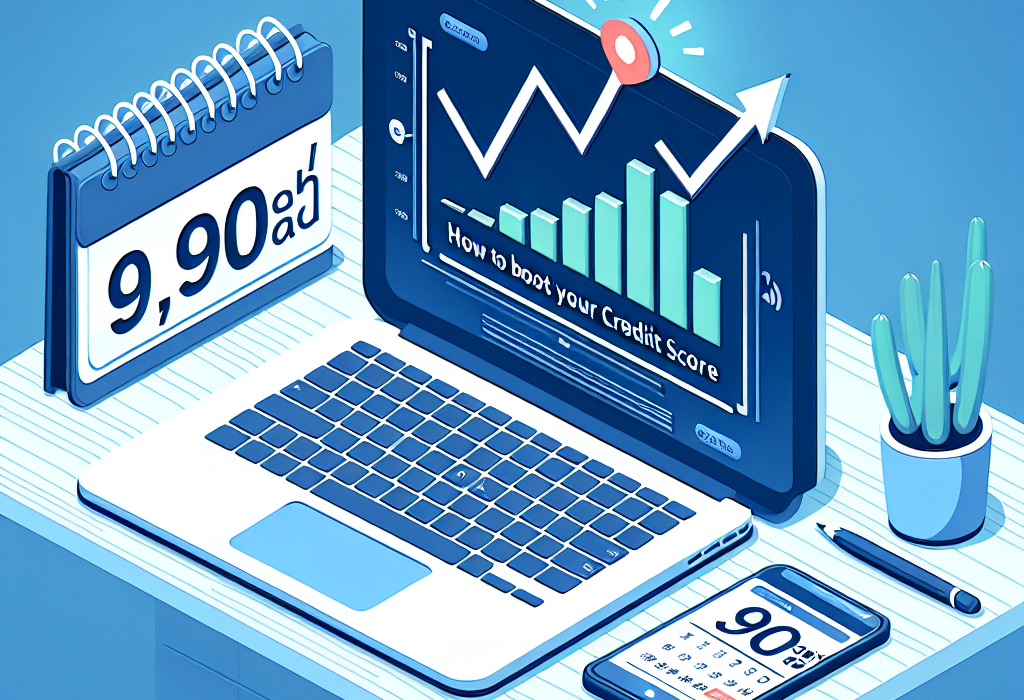If you have ever taken a loan, made a credit card purchase, or rented a home, you have a credit score. This unique three-digit number plays a crucial role in determining your eligibility for financing. A high score increases the likelihood of securing loans at favorable interest rates, while a low score might signify that you are a high-risk borrower, leading to potential loan denial or only qualifying for loans with high-interest rates.
What is a Credit Score?
A credit score sums up your credit risk based on a snapshot of your credit report at a particular point in time. It considers various factors, including the amount owed, credit mix, new credit, payment history, and the length of credit history. Higher credit scores suggest you are less risky for lenders.
How Do You Boost Your Credit Score in Just 90 days?
Review Your Credit Report
The first step in improving your credit score is knowing where you stand. Obtain a free copy of your credit report from reporting agencies such as Experian, Equifax, and TransUnion. Once you have your report, review it for accuracy, checking for mistakes in your personal information, the listing of your accounts, and your payment history. If you find any inaccuracies, file a dispute to have it corrected, which in turn could boost your score.
Pay Your Bills on Time
Payment history accounts for 35% of your FICO score, making it the most significant factor. Thus, it is crucial to always pay all bills on time. This includes not only loan payments but also rent, utilities, and even medical bills. Late or missed payments can harm your credit score significantly. Creating regular reminders or setting up automatic payments can assist with ensuring timely payments.
Pay Off Debts
Reducing the amount you owe can play a significant role in boosting your credit score. This goes for credit cards, loans, and other various forms of debt. Work towards paying off your debts, starting with those with the highest interest rates. Besides, aim to keep your credit utilization (the ratio of your credit card balances to their limits) below 30% to maintain a good score.
Keep Your Credit Card Balances Low
Revolve credit card balances impacts your credit score significantly. If you can, it is recommended to keep your balances at zero. However, if that’s not possible, make sure to keep them as low as possible, ideally below 30% of your credit limit to achieve a better credit score.
Keep Old Credit Cards Open
While it might seem logical to close a credit card account you are not using, it might negatively affect your credit score. Keeping the account open can boost your credit history’s length, contributing positively to your credit score. If the account is not costing you in annual fees, it might be best to keep it open.
Conclusion
Improving your credit score is not a one-time effort process; it requires dedication and financial discipline. Understanding what impacts your credit score provides a starting point, and pursuing strategies for improving your score can significantly impact your financial standing in just 90 days. Furthermore, maintaining healthy financial habits like timely bill payment, keeping balances low, and periodically reviewing your credit report plays a significant way towards maintaining a strong credit score.
Frequently Asked Questions (FAQs)
- Q1. How long does it take to improve a credit score?
- Improving a credit score requires time, patience, and consistency. However, small improvements can be seen within a 90 days period by implementing the right strategies.
- Q2. Can you really improve your credit score in 90 days?
- Yes, you can improve your credit score in 90 days. Some tactics such as correcting errors in your credit report, paying off outstanding balances, and making current payments on time, can boost your credit score within this period.
- Q3. How can I raise my credit score by 100 points in 90 days?
- While there’s no guarantee to raising your score by 100 points, regularly paying your bills on time, paying off outstanding debt, and maintaining low credit card balances can significantly improve your score.
- Q4. Does reducing my debt increase my credit score?
- Yes, paying off your debt can improve your credit score as it directly impacts your debt-to-credit ratio, an essential factor in calculating your credit score.
- Q5. Do missed payments affect my credit score?
- Yes, even one missed or late payment can negatively affect your credit score. It is important to ensure that all bills and payments are made on time.













